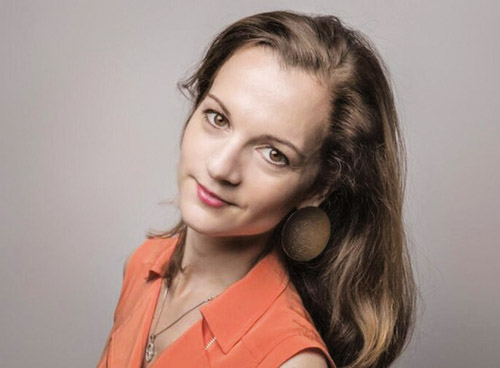



“We are committed to exposing Jew hatred, bringing accountability and consequences for the expression of Jew hatred, and promoting the liberation of, and justice for, the Jewish people,” reads the home page for the #EndJewHatred movement.
Started less than 10 months ago, the grassroots movement to end antisemitism has grown exponentially, with prominent organizations such as the Combat Antisemitism Movement, Zionist Rabbinic Alliance, Israel American Council and nearly 60 others stepping under the umbrella of #EndJewHatred’s mission.
The website continues: “Now, for the first time, we have an opportunity to de-wire Jew hatred from the culture. We will create a better, more just world by mobilizing the Jewish community to fight for justice for Jews. We will empower local Jewish communities by supporting on-the-ground activists and leaders. … A future without Jew hatred is possible if we are determined enough to create it.”
Among the many sharp thought leaders behind the movement, Hungarian native Virag Gulyas remains in charge of #EndJewHatred’s social media pages on Instagram, Twitter and Facebook. A creative strategist based in New York, Gulyas has been involved with the movement since its inception in October 2020. But even before then, Gulyas has had a long history with fighting antisemitism—despite not being Jewish.
“I came from a background that isn’t so Jewish-loving, to say the least,” she explained. “There are antisemites who are ignorant and don’t know any better, and then there are antisemites who actively hate Jews. I would say I fell into the former category.”
In her adult life, Gulyas began to explore the roots of antisemitism. “I had to ask myself hard questions like, ‘Why do I dislike Jews?’ and ‘What is Zionism?’ and that’s where it all began.”
When posed with these questions, Gulyas decided to share her journey with her online followers, writing a blog on Facebook she called “Almost Jewish,” referencing her affinity for Jewish people in spite of her personal background. As her writing gained popularity, Gulyas found herself working with various pro-Israel organizations and Jewish nonprofits, specifically in digital media and public relations roles. “I learned that if I can change, other people can … if antisemitism is driven by ignorance, then I need to be more involved to change that.”
Though educating the masses about the dangers of antisemitism is one of the main components of the #EndJewHatred movement, Gulyas said that her primary goal is mobilization.
“The Jewish people fail with mobilization. When there is a Jewish person who has been attacked, the next day it’s just business as usual,” she said. “We want to achieve what Black Lives Matter was able to achieve—that everyone can sign on to one ideology—which for us is to end Jew hatred.”
In drawing the comparison between #EndJewHatred and the Black Lives Matter movement, Gulyas described the process of mobilization as long and tedious, with several years’ underground work before the Black Lives Matter movement even gained popularity as it did in 2020, and didn’t just “appear out of nowhere.” She explained that a movement to end antisemitism has many odds to fight, and #EndJewHatred is challenged with “cracking the code” on what works when it comes to mobilizing the Jewish people.
The #EndJewHatred movement’s first victory came in late September 2020, when Zoom offered a platform for Palestinian hijacker Leila Khaled to speak at a virtual event sponsored by San Francisco State University. Gulyas said that several Jewish organizations, including the Lawfare Project, Herut North America, Club Z, Yad Yamin and Shield of David, banded together to speak up against the event, which was ultimately cancelled thanks to their efforts. Since then, #EndJewHatred has been at the fore of any and all blatantly antisemitic activities.
Several months later, in May 2021, the #EndJewHatred movement took on a spike in antisemitism, which Gulyas described as a “digital pogrom,” referring to the digital fight between Zionists and anti-Zionists following the rocket attacks on Israel.
“For someone who has been in this niche for a long time, [what we saw in May] went above and beyond the ‘normal’ levels of threats that Jewish people receive online.” She explained that anyone who posted anything even remotely Jewish-related on social media, including topics like Shabbat, was likely to receive a death threat. “It is absolutely out of control.”
Though #EndJewHatred began before the incidents in May, the level of online antisemitism that has taken place since then highlights the need for such a movement. “There is one thought behind #EndJewHatred—that every minority group deserves a civil rights movement,” said Gulyas.
She made it very clear that working with #EndJewHatred, and becoming instrumental in the mobilization against antisemitism, is her life’s work. “This movement is bigger than I am. If I wasn’t getting paid for anything else, I would still be a part of it and do it for free. I feel like I really found my calling.”
Gulyas’ blog, “Almost Jewish,” can be followed at https://www.facebook.com/thealmostjewish.
The #EndJewHatred movement is on Twitter and Instagram at @endjewhatred, and on Facebook at https://www.facebook.com/EndJewHatred/. To call something to the movement’s attention, use the hashtag #EndJewHatred.
Channa Fischer reports on digital Jewish and Zionist advocacy. She resides in Washington Heights.









